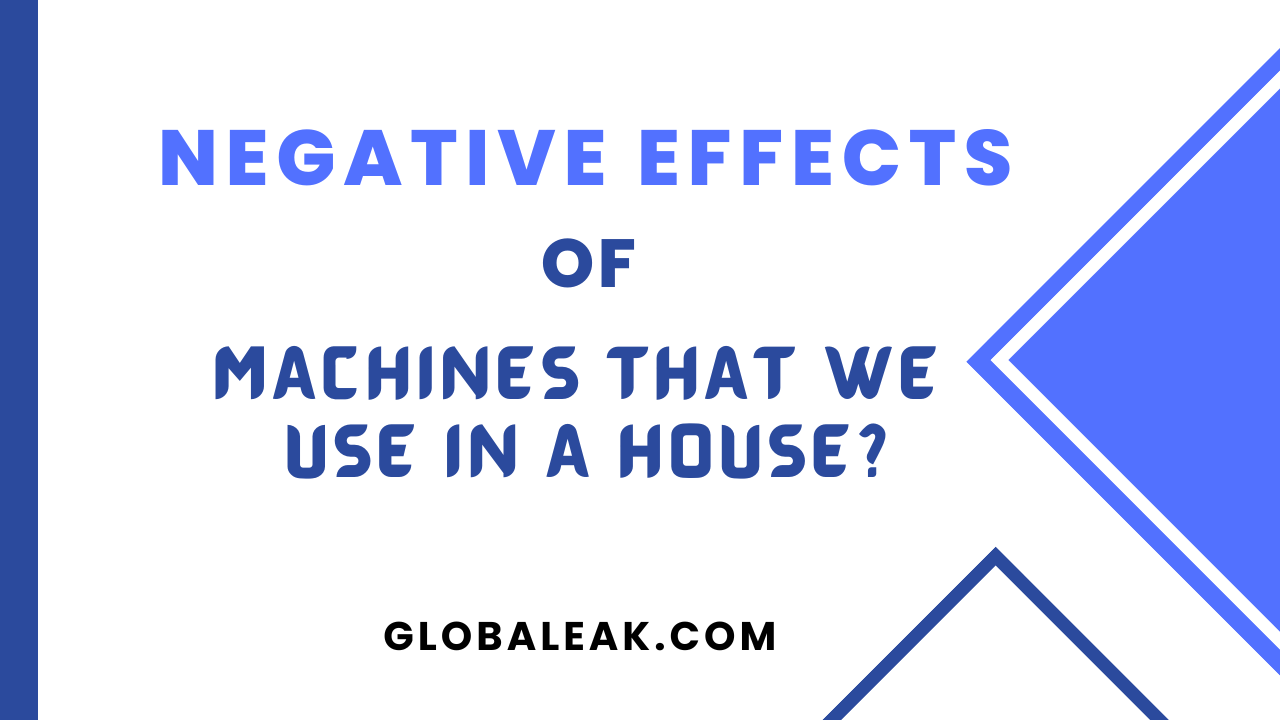Introduction
While machines used in households offer numerous benefits, they can also have negative effects. Here are some potential downsides:
Energy Consumption
Many household machines consume significant amounts of energy, contributing to higher electricity bills and environmental impact, especially if they are not energy-efficient models.
Environmental Impact
Manufacturing, using, and disposing of household machines can lead to resource depletion, pollution, and greenhouse gas emissions, contributing to environmental degradation.
Dependency and Reduced Physical Activity
Relying heavily on machines for household tasks can lead to a sedentary lifestyle, reducing physical activity levels, which is detrimental to overall health.
Maintenance and Repair Costs
Machines require regular maintenance and may break down, leading to additional costs for repairs or replacement.
Noise Pollution
Some household machines, like vacuum cleaners or blenders, can produce significant noise levels, which can be disruptive and irritating for residents.
Water Usage
Machines like washing machines and dishwashers consume large amounts of water, which can be a concern in regions facing water scarcity.
Electronic Waste (E-Waste)
When machines become obsolete or malfunction, they contribute to electronic waste, which can be challenging to dispose of responsibly and can pose environmental hazards if not managed properly.
Loss of Skills and Knowledge
Relying heavily on machines may lead to a decline in manual skills and knowledge of traditional household tasks, potentially resulting in a loss of self-sufficiency.
Safety Risks
Some machines, especially those with moving parts or high temperatures, can pose safety risks if not used properly. This is particularly important in households with children.
Impact on Social Interaction
Reliance on machines for tasks like cooking or cleaning can reduce opportunities for family members or housemates to engage in shared activities, potentially affecting social bonds.
Emotional Disconnect
An overreliance on machines for tasks that were traditionally done manually, like handwriting or crafting, may lead to a sense of disconnection from the process and a loss of the personal touch.
Privacy and Security Concerns
Smart home devices and appliances may collect data about user behavior, raising concerns about privacy and potential vulnerabilities to hacking or unauthorized access.
Technological Obsolescence
Rapid advancements in technology may lead to machines becoming outdated or incompatible with newer systems, requiring more frequent replacements.
It’s important to note that the negative effects of household machines can often be mitigated by responsible use, proper maintenance, and selecting energy-efficient and environmentally friendly models. Additionally, finding a balance between manual and machine-assisted tasks can help maximize the benefits while minimizing the drawbacks.
📍 English Language Educator | Blogger & Content Strategist | 7+ Years in Educational Blogging
Nosheen Bashir is a dedicated English teacher and experienced blogger with over seven years of expertise in content creation and educational writing. Passionate about language, literature, and effective communication, she combines her teaching experience with blogging skills to create insightful, research-backed content that helps learners and educators alike.
🔹 Expertise & Achievements:
✔ English Language Education: A skilled educator with years of experience in teaching English grammar, literature, and communication skills to students of varying levels.
✔ Educational Blogging: Running a successful blog for 7+ years, delivering well-structured, engaging content on language learning, writing techniques, and academic success.
✔ SEO & Content Strategy: Specializes in creating high-ranking, authoritative articles that follow Google’s EEAT principles, ensuring content that is both informative and search-friendly.
✔ Student-Centric Approach: Committed to making English easier, engaging, and accessible, helping readers and students improve their language proficiency.
🚀 With a passion for teaching and writing, Nosheen Bashir is dedicated to crafting educational content that empowers students, teachers, and language enthusiasts worldwide.










